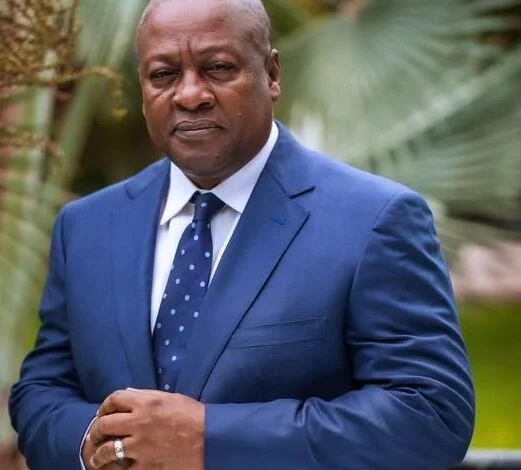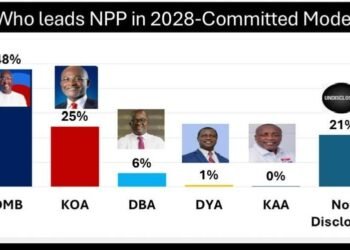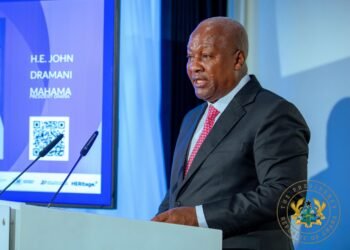President John Dramani Mahama has called on Ghana’s newly appointed envoys to place economic diplomacy at the centre of their mission mandates, stressing that their relevance and success will be measured by the level of investment and trade opportunities they are able to attract into the country.
At their orientation in Accra, President Mahama reminded the envoys that the world’s interconnected nature makes the link between domestic and foreign policy inseparable, requiring Ghana’s foreign representatives to channel their efforts toward delivering tangible benefits back home.
He explained that agreements and partnerships secured abroad directly impact communities across the country and therefore should be guided by Ghana’s Reset Agenda.
“The agreements signed in Britain or Washington will reverberate in Tamale, Kumasi, Ho, and Accra. For this reason, economic diplomacy is the cornerstone of Ghana’s foreign policy”
President John Dramani Mahama

The President explained that the Reset Agenda is focused on rebuilding the economy, restoring trust, and driving sustainable growth through partnerships and innovation. He charged the envoys to reposition Ghana’s missions abroad as hubs of “economic engagement, tasked with attracting investment, facilitating trade, and promoting technological advancement.”
In outlining the government’s focus areas, he pointed to industrialisation, renewable energy, digital services, agro-processing, infrastructure, and tourism as key sectors where the country seeks significant foreign investment.
He also urged the expansion of Ghana’s export market, with particular attention to value-added products such as processed shea butter, textiles, craft goods, and digital innovations. “Your success is going to be measured not by ceremony or protocol but by the scale of investment and trade opportunities you help secure for Ghana,” President Mahama stressed.
Expanding Ghana’s Diplomatic Presence
Foreign Affairs Minister Hon. Samuel Okudzeto Ablakwa, who addressed the orientation alongside President Mahama, disclosed that Ghana is set to expand its diplomatic representation globally, beginning with the establishment of a new consulate in Massachusetts, USA.

He revealed that the decision followed persistent demands from Ghanaians living in the United States who believe existing consulates in New York and Washington are overstretched and unable to serve the 58-state diaspora effectively.
“So President Mahama granted us approval for an additional consulate in Massachusetts,” Hon. Ablakwa announced.
Currently, Ghana operates 75 missions worldwide, including 13 high commissions, 48 embassies, and 14 consulates. The addition of the Massachusetts office will bring the number of consulates in the United States to three, further strengthening Ghana’s diplomatic footprint in one of its key partner nations.
The minister further disclosed that President Mahama has instructed the ministry to open new missions in Singapore and Dublin as part of a broader expansion. He explained that Ghana’s recent engagement with Singapore resulted in an agreement to deepen bilateral relations and establish a permanent presence in that country.
Similarly, the opening of a mission in Dublin aims to build stronger cultural and trade ties with Ireland. According to Mr. Ablakwa, these developments are not only about expanding the reach of Ghana’s diplomatic service but also about ensuring that foreign missions actively contribute to economic growth and provide essential services to citizens abroad.
He emphasised that new missions will be “strategically positioned to support investment promotion, trade facilitation, and cultural exchanges that align with the President’s Reset Agenda.”

Both President Mahama and the Foreign Affairs Minister underscored that Ghana’s external engagements must increasingly reflect the needs of its domestic economy. Missions abroad, they noted, should function as extensions of the country’s economic machinery, helping to secure partnerships that create jobs and drive sustainable growth.
For the envoys, the message was clear: their performance will no longer be assessed merely by diplomatic ceremonies or protocol but by measurable economic outcomes that resonate in communities across Ghana.
The orientation was thus framed not only as a briefing session but as a charge to deliver tangible results that support national development.
READ ALSO: Databank Warns of More Pain as Cedi Slips to GH¢12.70 Per Dollar























